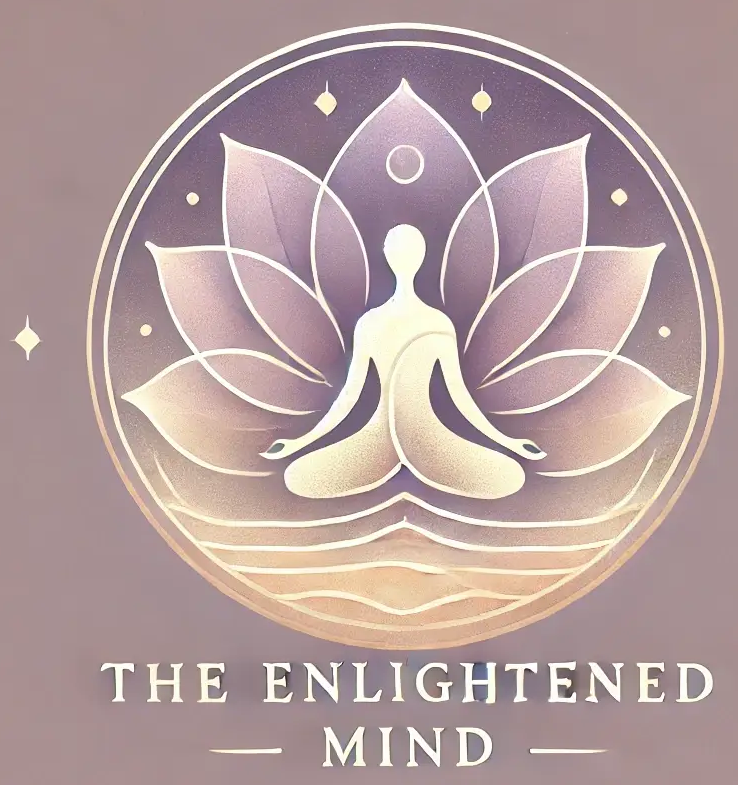‘I Choose Not to Experience Love’: How to Manage This Feeling
Love? No, thank you.
Love is pervasive in our culture through music, literature, TV, and reality shows, making it seem inevitable. However, not everyone desires to fall in love. Various reasons could lead someone to avoid romantic entanglements, such as limited time, fear of emotional pain, or relishing the independence of singlehood.
Regardless of your motives (no judgment here), there are strategies to shield yourself from developing romantic feelings. Psychologists refer to the use of cognitive and behavioral tactics to modulate the intensity of love as love regulation. Studies indicate that individuals can employ techniques like cognitive reframing and distraction to adjust the intensity of their romantic emotions.
If You’re Not Interested in Falling in Love, Here’s What You Can Do
If you’re not looking to fall in love, it’s crucial to understand the reasons behind this decision and figure out how to address it. While you may choose to opt out of romantic relationships, it’s equally important to consider how you can prevent this stance from hindering the development of other meaningful and supportive connections.
Reasons You May Hesitate to Engage in Romantic Love
Before dismissing the idea of falling in love entirely, it is crucial to delve into your reasons and deeply explore why you might be hesitant.
You’re Afraid of Getting Hurt
The fear of experiencing pain is a common reason for avoiding romantic love. It’s natural to be hesitant about opening up to the possibility of going through heartbreak once more.
Avoiding romantic relationships can be rooted in fear of the unknown and past negative encounters with love. Witnessing the breakdown of others’ relationships can also taint one’s perception of love without direct personal experience.
Losing a deeply loving relationship can amplify feelings of hurt and resentment. Studies indicate that the stronger the love, the more intense the pain when the relationship ends2
Previous betrayals may leave emotional scars that make it challenging to envision oneself falling in love again in the future.
Embracing Singlehood
While love is wonderful, so is the freedom of being single. Some individuals find joy in the independence and advantages that come with flying solo. Perhaps you are not ready for the commitment or the responsibilities that a relationship entails.
There could be a fear that being in a relationship might hinder your personal aspirations. Observing others in your circle delay their dreams after settling down may reinforce this concern.
Society often links falling in love with marriage and starting a family. If you do not desire these traditional milestones, the idea of love and “settling down” may evoke anxiety about losing your independence due to a romantic partnership.
Focusing on your personal growth and life objectives without the constraints of a relationship may appeal to you more than committing to the obligations and duties of being in a partnership.
You struggle with low self-esteem or self-worth
The resistance to love is not always about fears of vulnerability or losing autonomy. It can also be tied to concerns about our own worthiness of love. A lack of desire to engage in romantic relationships may indicate underlying issues related to self-esteem, attachment, anxiety, or other emotional challenges.
For instance, the reluctance to love could stem from fears of getting emotionally attached only to face rejection or loss later on. Individuals with struggles related to low self-esteem might grapple with feelings of unworthiness or undesirability. The pain of rejection and heartbreak can be so intense that some people choose to avoid romantic relationships altogether.
It is crucial to honestly examine the reasons behind your aversion to falling in love. If you find yourself unsure of the underlying factors, seeking guidance from a therapist can provide valuable insights and support.
Identifying and understanding the root causes of your resistance to love can help you address any barriers preventing you from forming healthy relationships. It can also help you gain clarity on your motivations for avoiding romantic entanglements.
Additional Considerations
Individuals who identify as aromantic, asexual, or demisexual/demiromantic may find the concept of falling in love, or the societal expectation to do so, unsettling and undesirable. This reluctance can be attributed to a lack of romantic or sexual attraction, societal standards regarding romance, and the societal pressure to form connections even when lacking the desire for a profound emotional connection.
Consider the Pros and Cons
If you are contemplating the idea of abstaining from falling in love, take some time to weigh the advantages and disadvantages of remaining unattached.
On the positive side, avoiding love means avoiding potential heartbreak if a relationship does not work out. Additionally, you can maintain your independence and focus on your goals without making room for a romantic partner in your life.
Nevertheless, refraining from letting love into your life comes with some significant downsides. For instance, you may miss out on the supportive and intimate connection of a healthy relationship. Furthermore, you will not have someone to share life experiences with or lean on during challenging times.
Studies have shown that romantic relationships offer notable benefits, including increased life satisfaction, enhanced quality of life, and decreased negative emotional states.4
Ultimately, the decision of whether or not to fall in love is a personal one that only you can make. Reflect on all the factors involved before deciding what feels right for you.
How to Overcome the Fear of Falling in Love
Remember, it’s essential to prioritize your own well-being, regardless of societal expectations or external influences. You have the option to either avoid romantic relationships altogether or remain receptive to the possibility of meeting someone special.
However, if you have concerns about feeling regretful in the future for not pursuing love, there are strategies you can implement to confront your apprehensions and be more willing to embrace the potential for a meaningful and enduring romantic bond.
Talk to a Therapist
Seeking support from a mental health professional can be beneficial if you are struggling with issues related to self-esteem, attachment, or anxiety. Enhancing coping mechanisms and communication skills can greatly improve your ability to navigate romantic relationships effectively.
Various forms of therapy, like cognitive behavioral therapy, offer tools to shift your perspectives on love and relationships for the better.
Practice Being Vulnerable with Loved Ones
Experiencing love involves being willing to open your heart to someone new, a process that can be challenging. If the reluctance you feel is rooted in a fear of being vulnerable, consider starting by confiding in trusted friends and family members.
Make an effort to engage in candid conversations with them about your emotions, thoughts, and life experiences on a regular basis. As you grow more accustomed to sharing your deepest feelings and thoughts with loved ones, you may discover that you become more at ease with the idea of opening up to a potential romantic partner in the future.
Don’t Underestimate Non-Romantic Love
Love manifests in various forms, and romantic relationships are just one aspect. Establishing a robust social support system is crucial for mental well-being.
Typically, individuals in relationships exhibit better mental well-being compared to singles. Nevertheless, the presence of strong social support can help offset this pattern.
If romantic love seems out of reach, concentrate on cultivating meaningful, supportive connections with friends and family.
Keep in mind that it is feasible to care for someone without romantic feelings. Prioritize fostering platonic relationships as they can offer the benefits of love without the complexities of romantic entanglements.
Consider Your Desires for a Relationship
If you are uncertain about being prepared for a relationship, contemplate the qualities you desire in a significant other.
After identifying your preferences, embracing the possibility of developing romantic feelings could become less daunting.
How to Prevent Falling in Love
So, you have made the decision that falling in love is not on your agenda. That’s perfectly fine. Here are some strategies to help you maintain your desired emotional detachment.
Understanding the reasons behind your desire to avoid falling in love is crucial in taking proactive steps to steer clear of it. If you have a fear of emotional pain, you may choose to avoid relationships that appear tumultuous. Alternatively, if you are not inclined towards the obligations of a committed relationship, opting for casual dating may be more suitable.
Open and honest communication with your potential partners is vital. If you are not prepared for a serious commitment, communicate this to them upfront. This approach prevents misunderstandings, ensures you do not manipulate their feelings, and avoids placing yourself in uncomfortable situations.
Oops, You Fell in Love Anyway. What Now?
Sometimes, love occurs unexpectedly, which can be disconcerting if you had previously made a promise to yourself to avoid it. There may be concerns about betraying your own intentions or veering off course from your plans. This situation could potentially result in detrimental behaviors like undermining your relationship or feeling anxious about its future.
If you do end up falling in love despite your reservations, there are steps you can take to safeguard yourself and enhance the likelihood of a successful relationship.
Take Your Time
When you are getting acquainted with someone, it is essential to proceed slowly. Avoid rushing into physical or emotional aspects of the relationship. Start by building a friendship and observe how things evolve naturally over time.
Set Boundaries
Establishing boundaries is crucial in any relationship, especially when taking things slowly to avoid becoming too emotionally attached. It is important to ensure mutual understanding of the relationship’s expectations and to communicate openly if feeling stressed or uneasy.
Communicate Openly
Honest and open communication plays a crucial role in all relationships, especially when opting for a slower pace. Discuss your emotions, hopes, and concerns openly. The more you talk, the better you’ll be able to understand each other and nurture a strong and healthy relationship.
Embrace the Present
When starting a new relationship, it can be tempting to think ahead and envision a future with your partner. However, to avoid becoming overly attached too quickly, it’s crucial to embrace the present moment and approach things one step at a time. Enjoy the process of getting to know your partner and refrain from fixating on the future trajectory of the relationship.
Key Points to Remember
Contrary to common beliefs, being in love is not a prerequisite for happiness. It is perfectly acceptable to resist falling in love if that is your choice. It is crucial to be open and truthful with both yourself and your partners regarding your emotions.
If you are not prepared for a committed relationship, it is important to express your thoughts and set boundaries. This communication is essential for preventing emotional harm to yourself or others.


